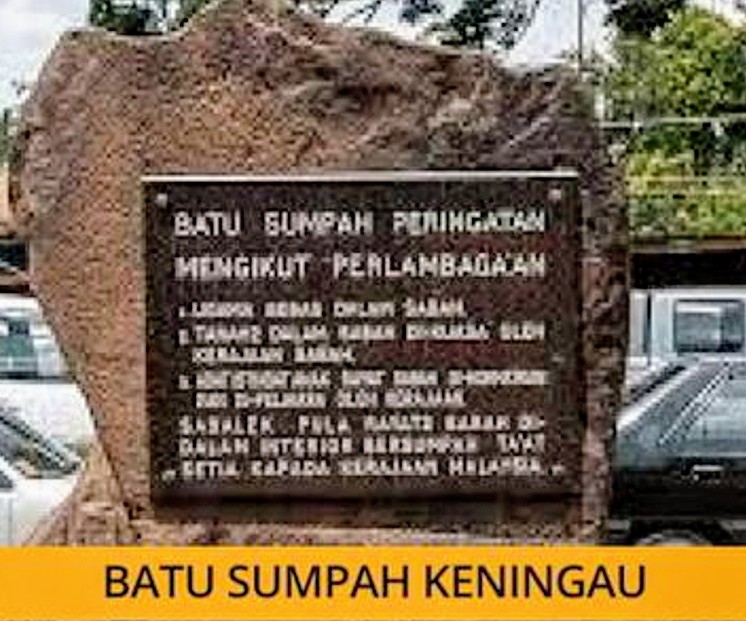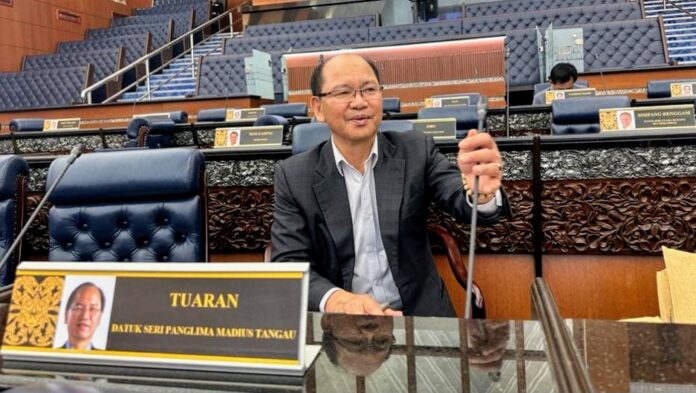Datuk Seri Panglima Wilfred Madius Tangau
KOTA KINABALU: – UPKO Malaysia Honorary President Datuk Seri Panglima Wilfred Madius Tangau (Tuaran-Upko) said failure to honour the Malaysia Agreement 1963 (MA63) might incur a generational curse, citing the historic significance of the sacred stone named “Batu Sumpah Keningau”.
Speaking in the Dewan Rakyat in Kuala Lumpur on Wednesday, Tangau questioned the government’s delay in implementing MA63 and reminded the lower house about the consequences of breaking promises, particularly in light of the sacred ritual that took place in Keningau in 1962.
He said a year after the signing of the MA63 agreement, animals were sacrificed, and their blood poured on the Keningau stone, symbolising a commitment to Sabah and Sarawak’s participation in the formation of Malaysia.
“According to the belief of Momogun’s tribe (in Sabah), a curse is cast on parties that are involved in an agreement, and if we violate the agreement, it could trigger the generational curse.
The member of Parliament for Tuaran pointed out that –
“The nation went through twists and turns in its post-Malaysia formation, such as continuous threats to Sabah’s freedom. Labuan became a federal territory without any compensation paid to Sabah, while 124,389ha of Sabah’s land was handed to Felda without equity ownership to Sabah’s state government.”
“We are also seeing slowed development in the state, with never-ending issues of power and electricity supplies, as well as Filipino refugees encroaching on our land.”
“Are we paying the price for not honouring the MA63 agreement? Is this curse only limited to Sabahans, or is the nation cursed for not honouring the agreement, and violating it?” he asked.
In his speech, Tangau also emphasised that every lawmaker bears the responsibility of ensuring MA63’s execution, as it is part of Sabah’s constitutional rights.
He supported Puncak Borneo MP Datuk Willie Anak Mongin’s suggestion to include MA63’s history in the school syllabus.
“We must have the same vision when building a unified Malaysian nation. So to achieve that, we first must have a common history, and our first history is the formation of Malaysia,” he said.

“Batu Sumpah Keningau” holds significant cultural value, binding promises related to religious freedom, Sabah’s land security, and protection for local tribal customs.
It symbolises Sabah’s allegiance to the federal government in forming Malaysia alongside Sarawak.



